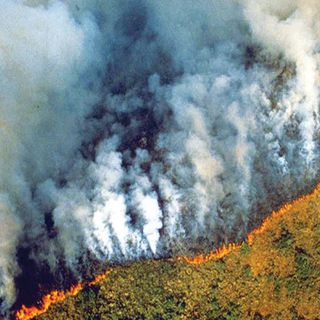Droughts linked to climate change can slow or reverse progress made eradicating stunting caused by childhood malnutrition, according to a new study published in the U.S-based journal, Proceedings of the National Academy of Sciences. The study follows a UN report that raised a dire warning about food security being at risk due to “unprecedented” climate change effects.
Stunting, according to UNICEF, is defined as the percentage of children, aged 0 to 59 months, whose height for age is severely underdeveloped. Stunting is caused by child malnutrition, which also causes nearly half of all deaths in children under five. Child malnutrition puts children at greater risk of dying from common infections, increases the frequency and severity ofinfections, and delays recovery. As temperatures rise and droughts become worse due to climate change, progress made to eradicate child malnutrition is likely to reverse— due to the eventual drop in the availability of nutritious food during such a disaster.
Related on The Swaddle:
Climate Change Is Driving Childhood Obesity, Undernourishment by Making Healthy Food Less Accessible
Researchers state that previous attempts to find vulnerabilities in food systems did not incorporate disasters like droughts and their nutrition outcomes. This study used 580,000 observations of children from 53 countries to indicate that extremes in rainfall are specifically associated with worsening child malnutrition.
“We found that a number of factors can make children resilient to droughts, such as good governance, nutritionally diverse crops, higher levels of imports per capita, overall crop production, and irrigation,” said lead author Matthew Cooper, a member of the 2018 IIASA Young Scientists Summer Program, in a statement.
He added, “By assessing all of these factors quantitatively, we were able to identify the places that were the most vulnerable to drought. These were predominantly arid, poorly governed countries with little trade, including Chad, Eritrea, Somalia, South Sudan, Sudan, and Yemen.”
None of these countries feature anywhere near the list of countries responsible for the most carbon emissions. None of the malnourished children will have any influence on creating climate change, even though they will bear the brunt of it. “This is a grave injustice that needs to be addressed,” said Cooper in the statement.
The study’s authors also stated that they hope their report helps global actors like the UN Food and Agriculture Organization or the World Health Organization get a sense of where to target aid in the future.




